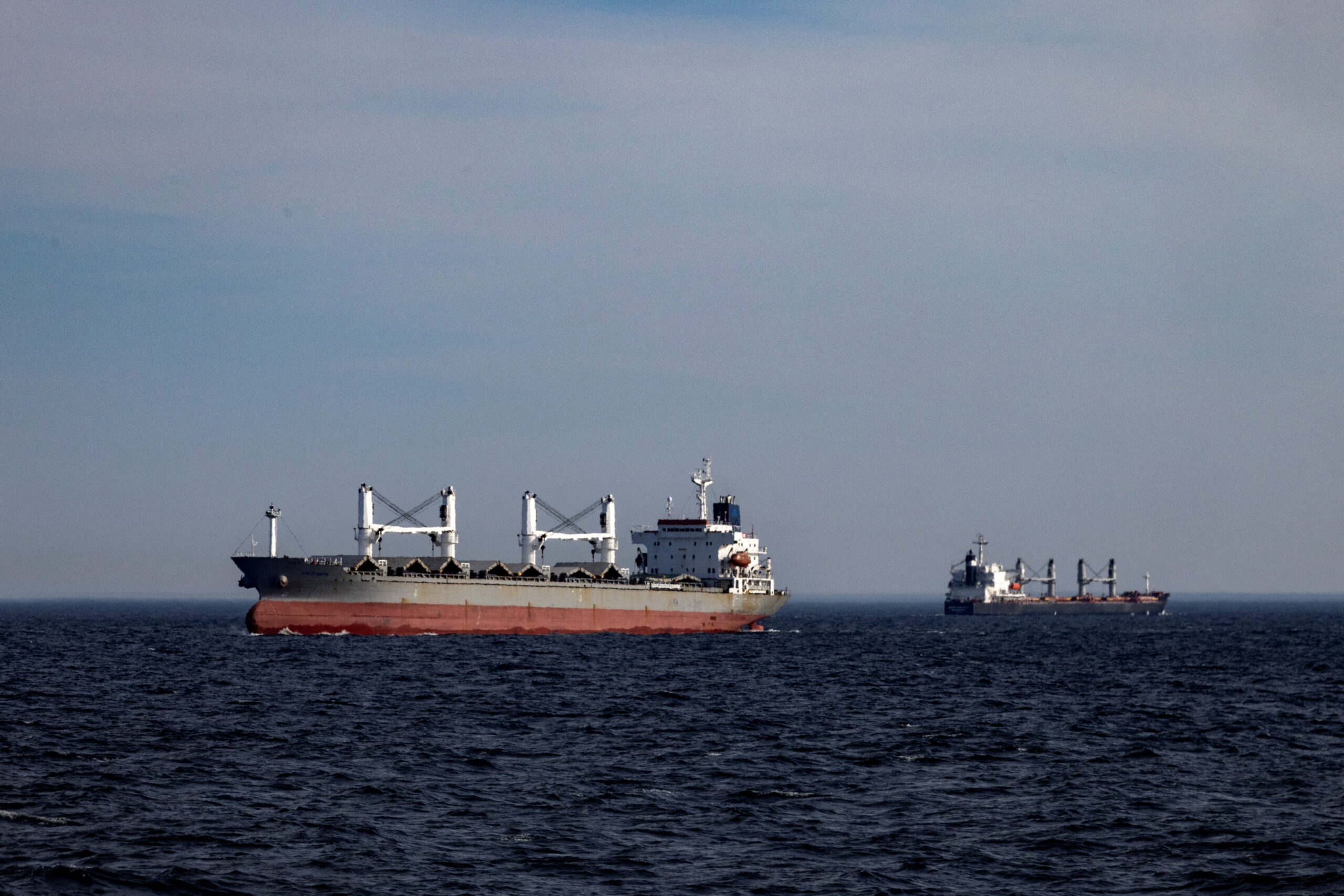Russia and Ukraine Trade Strikes on Black Sea Ports
Russia and Ukraine struck each other’s Black Sea ports overnight, damaging infrastructure including an oil refinery.

Cargo ships are seen from a patrol boat of Ukraine’s coast guard as they sail in the Black Sea, amid Russia’s attack on Ukraine, February 7, 2024. REUTERS/Thomas Peter
The European Union has announced a new strategic initiative for the Black Sea region, with maritime security and connectivity at its forefront. The strategy introduces a dedicated Black Sea Maritime Security Hub aimed at strengthening maritime safety, protecting critical infrastructure, and enhancing regional cooperation on demining operations.
“An active role of the European Union is crucial in advancing security and peace in the Black Sea region especially with Russia’s war of aggression against Ukraine,” stated EU President Ursula von der Leyen.
The initiative comes at a critical time, as Russia’s invasion of Ukraine has severely destabilized the region, bringing security to its lowest point since the Cold War. The Black Sea’s strategic importance as a pivotal gateway linking Europe, the South Caucasus, Central Asia, and the Mediterranean makes its stability crucial for international trade, food security, and energy security.
A series of recent incidents, including a drone strike on Russia’s Boyko Towers oil platform and attacks on Ukrainian ports, have created a highly volatile environment. Security analysts now assess the likelihood of intensified attacks on Black Sea shipping at 70-80%, with elevated threats from naval mines and GPS interference.
The EU strategy will mobilize investments through the Global Gateway Strategy, bringing together EU institutions, Member States, and European financial institutions in a coordinated effort. Key partners in the initiative include Ukraine, the Republic of Moldova, Georgia, Türkiye, Armenia, and Azerbaijan.
A particular focus will be placed on developing transport, energy, and digital networks to establish the Black Sea region as a vital corridor connecting Europe with Central Asia. The strategy also addresses environmental concerns, including war-related environmental damage and climate change risks.
The initiative builds upon the existing Black Sea Synergy framework, established in 2007, and will complement the Common Maritime Agenda for the Black Sea.

Sign up for gCaptain’s newsletter and never miss an update

Subscribe to gCaptain Daily and stay informed with the latest global maritime and offshore news
Essential news coupled with the finest maritime content sourced from across the globe.
Sign Up